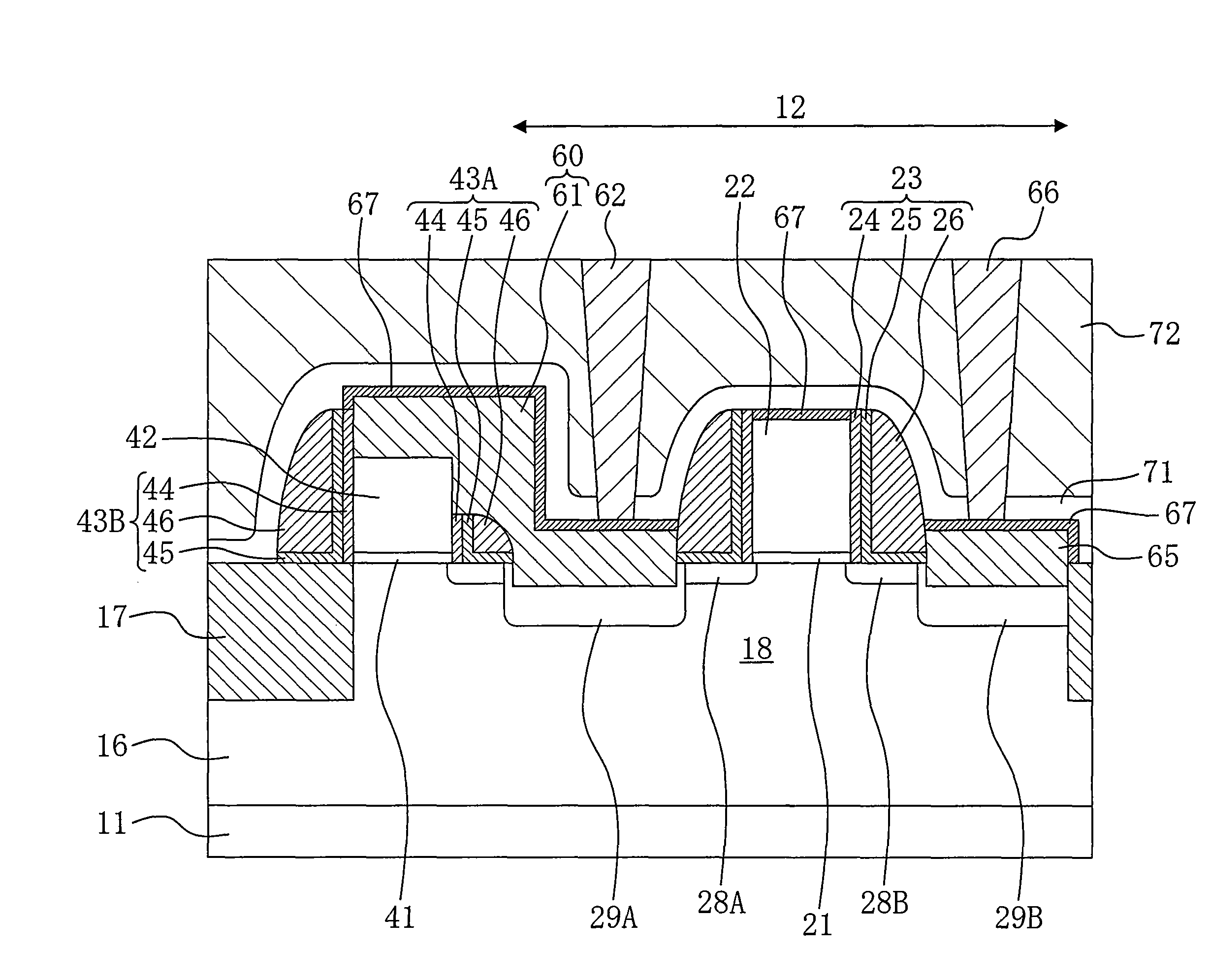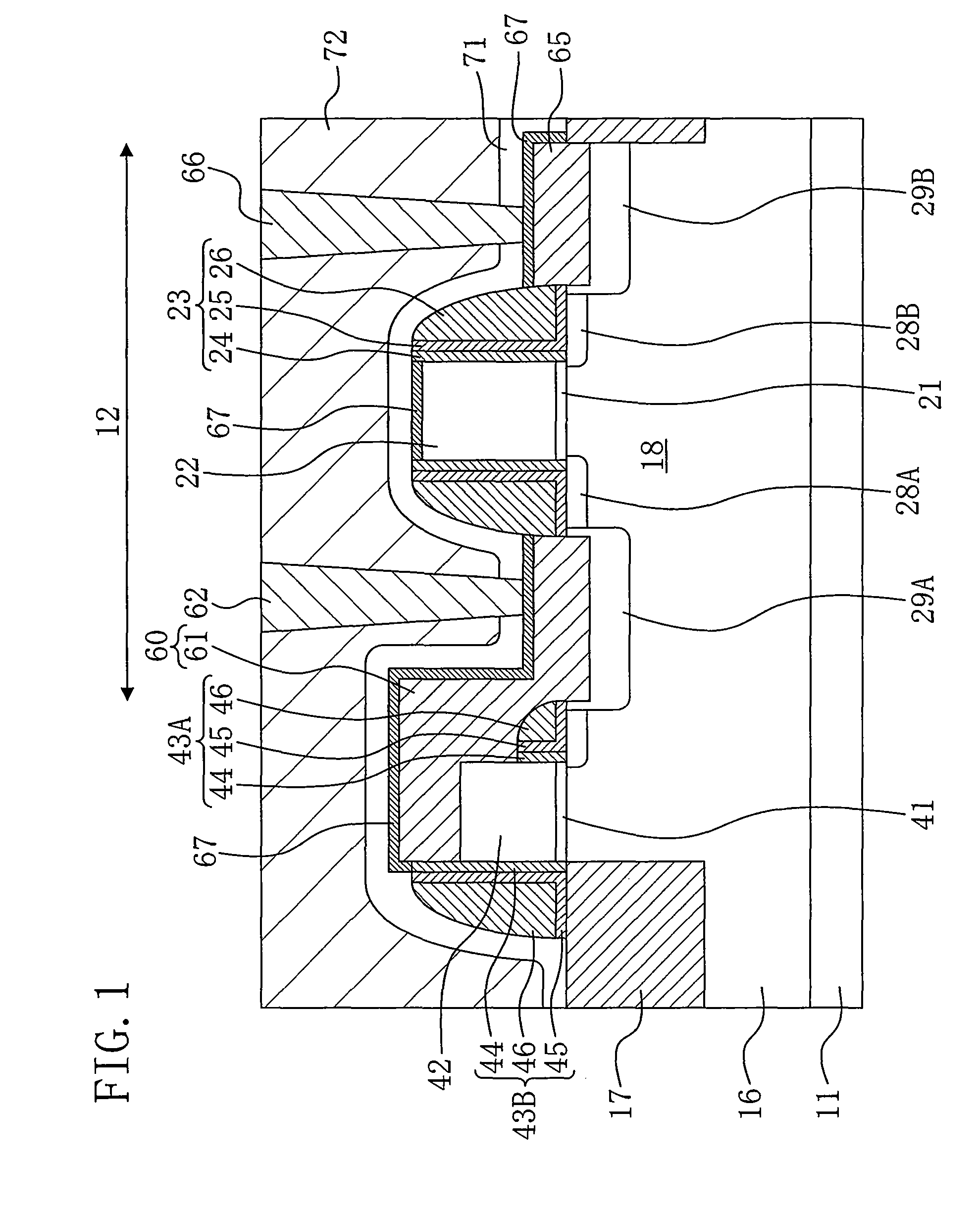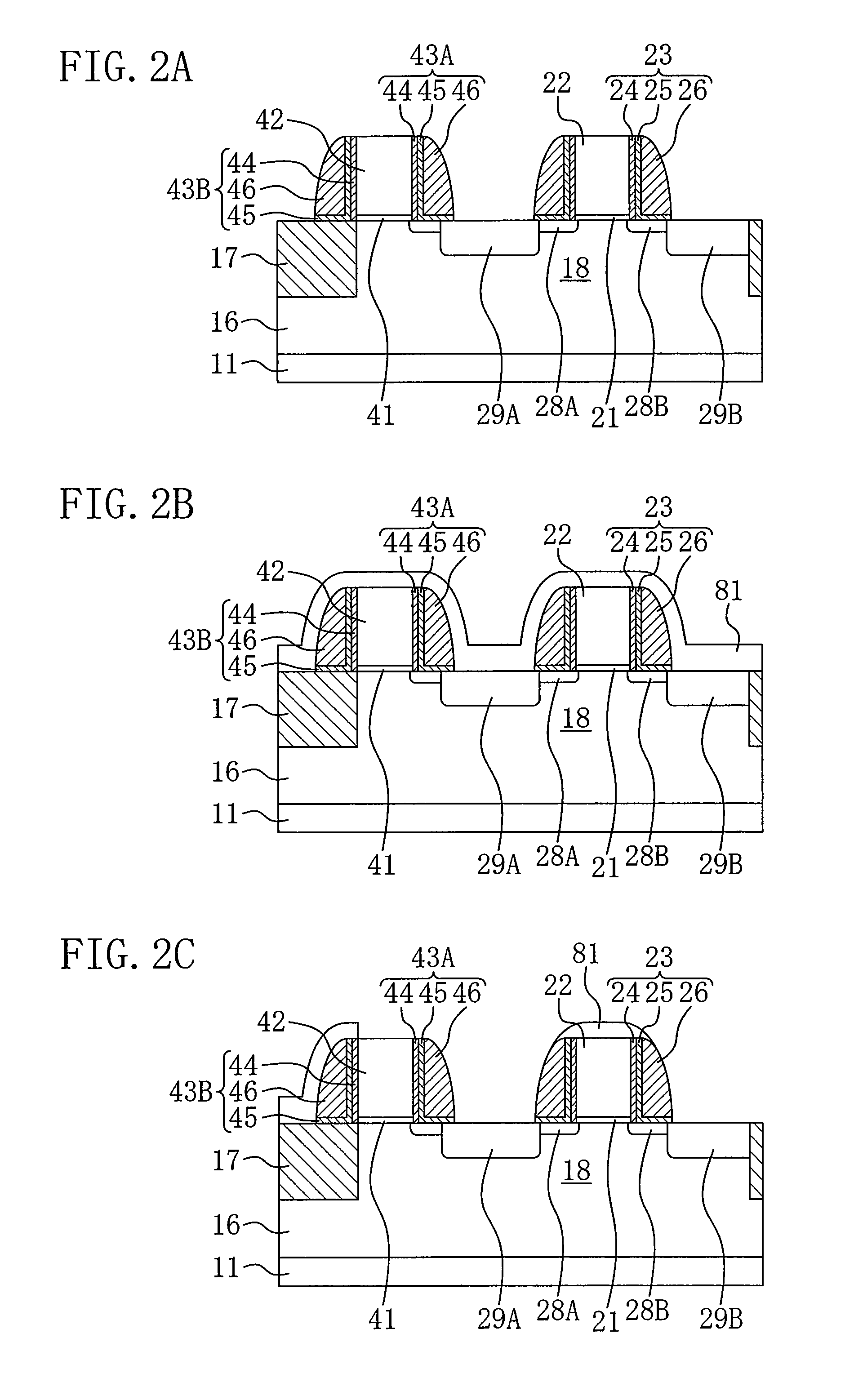Semiconductor device and fabrication method for the same
a technology of semiconductor devices and fabrication methods, which is applied in the direction of semiconductor devices, semiconductor/solid-state device details, electrical apparatus, etc., can solve the problems of increasing the size of the resultant semiconductor devices, difficulty in controlling the dimensions normal contact plugs, etc., to reduce the contact hole for the formation of shared contact plugs, reduce the size of semiconductor devices, and high precision
- Summary
- Abstract
- Description
- Claims
- Application Information
AI Technical Summary
Benefits of technology
Problems solved by technology
Method used
Image
Examples
embodiment 1
[0030]FIG. 1 shows a cross-sectional configuration of a semiconductor device of Embodiment 1 of the present invention. As shown in FIG. 1, the semiconductor device of this embodiment has a local interconnect structure 60 composed of a SiGe layer 61 formed to extend over the top surfaces of a first source / drain region 29A, a sidewall 43A and a gate interconnect 42.
[0031]As shown in FIG. 1, an n-type well 16 is formed in a semiconductor substrate 11 made of silicon (Si), and an active region 18 surrounded with an isolation region 17 is formed in the n-type well 16. A p-type MIS transistor 12 is formed in the active region 18.
[0032]The MIS transistor 12 includes a gate electrode 22 formed on the active region 18 with a gate insulating film 21 interposed therebetween and sidewalls 23 formed on both side faces of the gate electrode 22. Each of the sidewalls 23 has an offset sidewall 24 having a plate-shaped cross-section, an inner sidewall 25 having an L-shaped cross-section and an outer...
embodiment 2
Alteration to Embodiment 2
[0065]An alteration to Embodiment 2 of the present invention will be described with reference to the relevant drawings. FIG. 9 shows a cross-sectional configuration of a semiconductor device of an alteration to Embodiment 2 of the present invention. As shown in FIG. 9, the semiconductor device of this alteration has a local interconnect structure 60 composed of a first SiGe layer 61A formed on the first source / drain region 29A, a second SiGe layer 61B formed on the gate interconnect 42 and a shared contact plug 63 connected to part of the first SiGe layer 61A and part of the second SiGe layer 61B.
[0066]With the above configuration, the second SiGe layer 61B on the gate interconnect 42 extends toward the sidewall 43A, narrowing the space between the first and second SiGe layers 61A and 61B. Hence, the contact hole for the shared contact plug 63 can be made small compared with the configuration without the second SiGe layer 61B.
[0067]In this alteration, also,...
PUM
 Login to View More
Login to View More Abstract
Description
Claims
Application Information
 Login to View More
Login to View More - R&D
- Intellectual Property
- Life Sciences
- Materials
- Tech Scout
- Unparalleled Data Quality
- Higher Quality Content
- 60% Fewer Hallucinations
Browse by: Latest US Patents, China's latest patents, Technical Efficacy Thesaurus, Application Domain, Technology Topic, Popular Technical Reports.
© 2025 PatSnap. All rights reserved.Legal|Privacy policy|Modern Slavery Act Transparency Statement|Sitemap|About US| Contact US: help@patsnap.com



